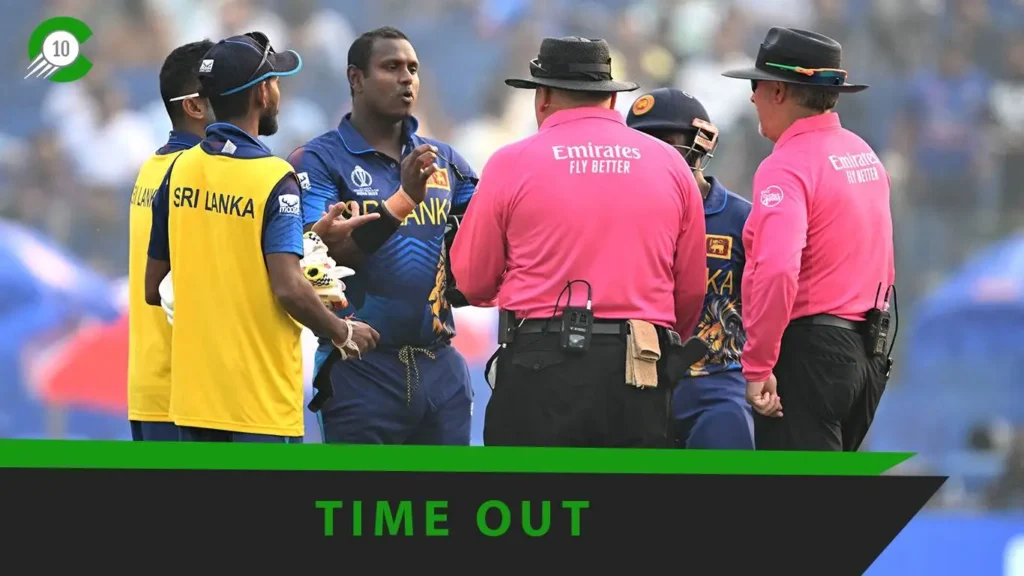From Hero to Zero in a Blink: The Shocking Truth About “Timed Out” Dismissals
Cricket, often dubbed the gentleman’s game, is more than just fours and wickets; it’s a realm governed by rules that bring depth to the sport. Today, we take you on an enlightening journey into the depths of an often-overlooked, yet crucial dismissal method – the ‘Timed Out’ rule. Brace yourself for the quirky anecdotes and insightful exploration of this rare occurrence in international cricket.

Decoding ‘Timed Out’ in Cricket
In the hallowed pages of the Marylebone Cricket Club (MCC) rule book, ‘Timed Out‘ emerges as a dismissal spectacle. Picture this: a new batsman strolls in, but if they aren’t geared up to face the next ball within a specified timeframe – usually three minutes by MCC standards or a brisk two minutes in the ICC World Cup 2023 – they risk being declared ‘Timed Out.’
Angelo Mathews’ Helmet Woes: A Historic ‘Timed Out’ Episode
Fast forward to November 6, 2023, during an ODI World Cup showdown between Sri Lanka and Bangladesh in New Delhi. Enter Angelo Mathews as the No. 6 for Sri Lanka, facing a ‘Timed Out’ debacle due to a helmet hiccup. Bangladesh, with a strategic appeal, etched Mathews into history as the inaugural cricketer ‘Timed Out’ in an international match.
Time Capsule to the ’80s: The Origin and Evolution
Venture back to the 1980 cricket laws, where the concept of ‘Timed Out’ sprouted, giving batsmen a generous two minutes to grace the field. Fast-forward to the 2000 code, and the timeframe bulged to three minutes, aiming to curb game delays. The rule is a nifty game-changer, emphasizing the need for seamless match flow and player preparedness.
Law 40 Unveiled: Current Laws and Whimsical Consequences
Under Law 40 of the Laws of Cricket, if the incoming batsman dawdles beyond the set time, an appeal could turn the tide towards a ‘Timed Out’ verdict. A strategic twist comes into play, where the batting captain can nominate any yet-to-bat player. If the nominated player skips the grand entrance, the opposing team might walk away with the match. Blink, and you might miss it – in Twenty20 cricket, the clock ticks at a swifter 90 seconds.
Wrapping Up the Time-Tested Tale
‘Timed Out’ might be cricket’s elusive unicorn, yet it underscores a symphony of readiness and rule adherence. This peculiar dismissal rule injects complexity into the game, demanding players to blend strategy with swiftness. As cricket enthusiasts, knowing these rules elevates our love for the game, turning each match into a delightful puzzle waiting to be solved. Who knew a ticking clock could add so much drama to the gentleman’s game?